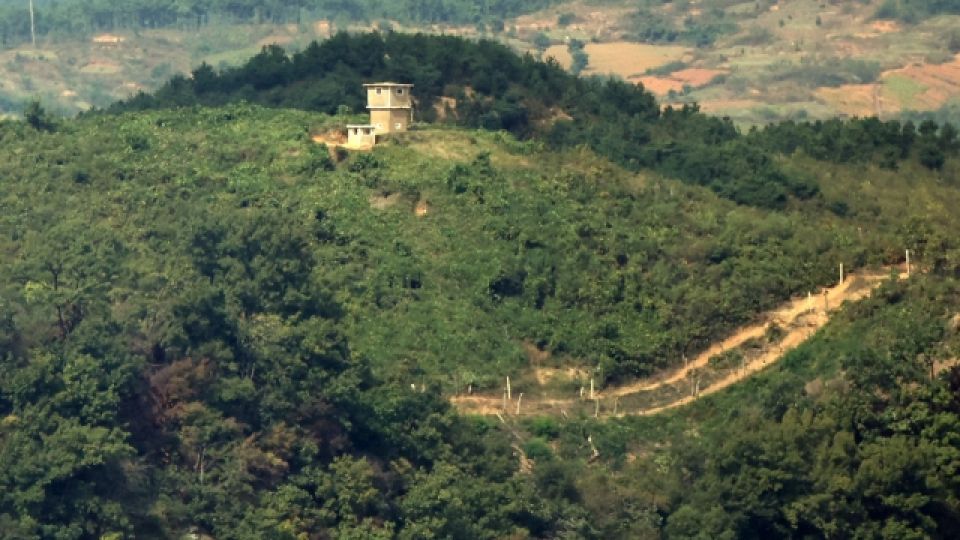October 10, 2024
SEOUL – The North Korean Army has informed the United Nations Command of plans to fortify the shared border with the South, Seoul defense authorities said Wednesday, confirming a Pyongyang state agency report earlier the same day.
The General Staff of the Korean People’s Army said it would completely cut off roads and railways connecting to South Korea and build fortifications along the border in a statement carried by the Korean Central News Agency on Wednesday.
The KPA said it had communicated to the US military at 9:45 a.m. on Wednesday about construction work in the border area that would begin the same day, to avoid “misunderstandings” and any “unnecessary clash.”
This announcement builds on North Korean leader Kim Jong-un’s “two Koreas” speech to the North’s parliament in January that marked a departure from decades of the regime’s commitment to unify the Korean Peninsula.
South Korea’s Joint Chiefs of Staff labeled the North Korean Army’s moves as yet another ploy by the Kim regime to undermine the Korean War armistice and threaten peace in the region.
Any attempt by North Korea to disrupt the status quo would be met by an “overwhelming” response based on a “firm joint defense posture” with the US, the JCS warned.
North Korea is trying to turn the military demarcation line into a border separating two countries with the construction, according to Democratic Party of Korea Rep. Park Sun-won, former deputy director of the National Intelligence Service.
“Not only is the border-building a deviation from our mutual pursuit of reunification that is rooted in history, it also amounts to a violation of the Korean War armistice agreement,” said Park, who was part of the South Korean delegation to the six-party talks on North Korea’s nuclear program.
The armistice agreement bars both North and South Korean troops from entering the Demilitarized Zone that surrounds the demarcation line, he explained.
“If they want to set up a border along the demarcation line, they would first need to replace the armistice with a peace treaty. We have not had that discussion.”
North Korea seemed to be making a political move aimed at consolidating Kim’s characterization of inter-Korean relations as two separate countries, he said.
“North Korea appears to have told the US-led United Nations Command, which oversees the Demilitarized Zone, so that the border area activities would not be misunderstood as a military provocation,” he said.
The Democratic Party lawmaker called on South Korea’s Ministry of National Defense and the JCS to disclose how soon they were in touch with the UN Command about the North Korean plans. The announcement by the North’s news agency was made less than an hour after 9:45 a.m., the time it claims to have contacted the US side.
The Defense Ministry said it was “closely communicating” with the UN Command on the developments, without further details.
People Power Party Rep. Lim Jong-deuk, who was formerly deputy national security adviser to President Yoon Suk Yeol, agreed that closing the cross-border roads was among a series of steps to support the North Korean leader’s “two Koreas” suggestion.
As South Korea’s conventional military capabilities “overwhelm” those of the North, North Korea may seek to offset the imbalance by building forts at key points on the front line as well as possibly underground tunnels, he told The Korea Herald.
“It is unclear at this point whether the construction will take place on the North’s side of the border or along the demarcation line,” he said.
Lim added this was also believed to be a part of the North’s backlash against the recent deployment of Hyunmoo-5 ballistic missiles, which are designed to destroy underground North Korean bunkers, and other US strategic assets at the Armed Forces Day parade in Seoul last week.
Wednesday’s announcement may be a reflection of possible revisions regarding the concept of the border at the Supreme People’s Assembly in Pyongyang earlier this week, according to Park Won-gon, a professor of North Korean studies at Ewha Womans University in Seoul.
Speaking to The Korea Herald, he pointed out that North Korean provocations so far this year have targeted South Korea alone. North Korea has withheld tests of missiles that can reach the US mainland after December last year for one thing, he said.
“Communicating directly with the US about its intentions is also highly unusual for North Korea, which cut off communication channels with the US military in 2020,” he said. “This seems to be their way of signaling that they do not want conflict with the US while trying to sow a rift between South Korea and the US.”


